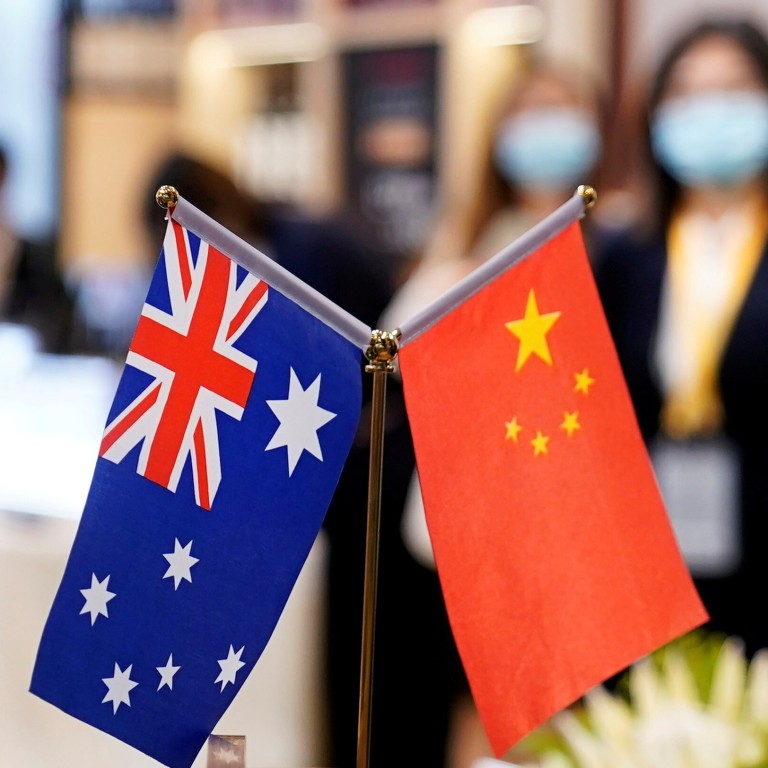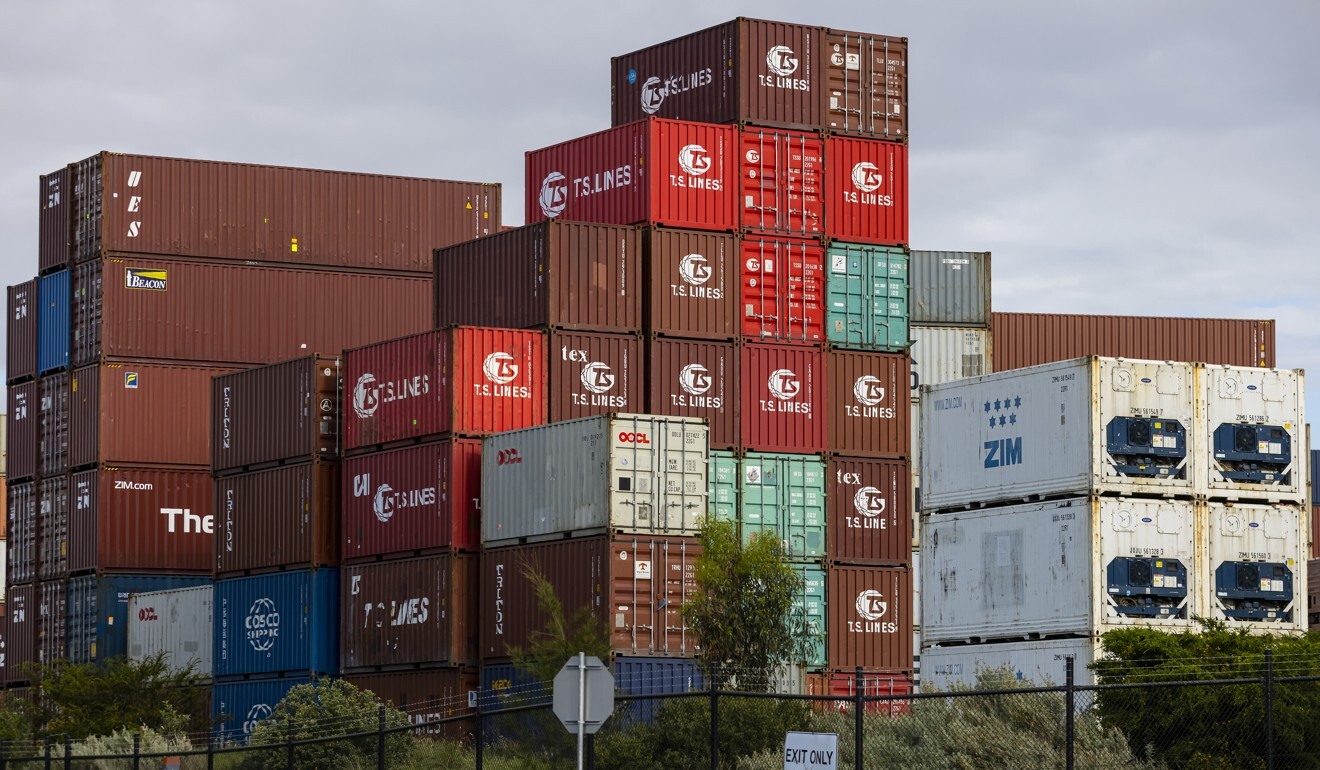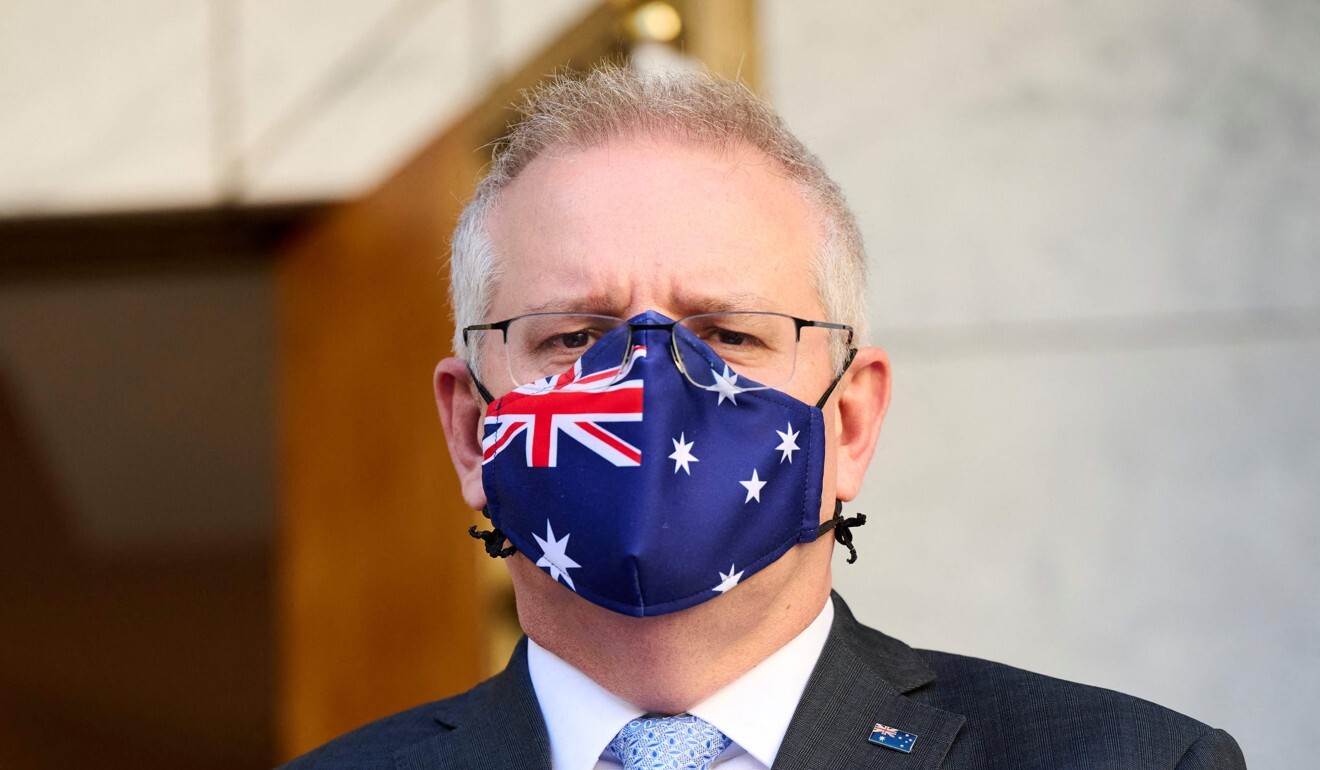
For Chinese-Australians, Beijing dispute is bad for business even if bid to ‘weaponise’ trade has crumbled
- Small ethnic Chinese businesses such as winemakers and the ‘daigou’ industry have seen a rapid drop in mainland customers as relations worsen
- They are also treated differently in Australia, and many believe Canberra could do more to ease tensions, especially after the Aukus security pact
For Song, who was born in China and has lived in Sydney for nearly 30 years, selling to China is now fraught with uncertainty as Canberra’s political tensions with Beijing continue to plumb new depths.

“You just don’t know how Chinese customs will treat products coming from Australia, which is fair enough because Australia has been provoking them all the time,” said Song, echoing a view among some ethnic Chinese that Canberra should have made efforts to de-escalate the disagreement and communicate more with Beijing.
Song believes that the political tensions have made Chinese consumers less accepting of Australian products. “The virus cannot stop you from doing business, but politics will,” Song said.
With Australia now able to acquire nuclear-powered submarines for Indo-Pacific security, analysts say it is clear that Canberra is firmly on the side of the US, even as it has often said it wants to be an ally with Washington but a friend of Beijing’s.
While Beijing has yet to retaliate, there are concerns that it could target Australia’s international education industry as agencies dissuade Chinese students from heading down under.
Mainland Chinese used to be the largest group of international students enrolled in Australian universities, but their numbers have fallen from 211,965 in 2019 to 160,061 as of July 2021 on the back of pandemic border restrictions. Anecdotal evidence suggests they are now looking to Hong Kong, Singapore, the US and European countries rather than Australia.
Similarly, Australia’s tourism industry may suffer collateral damage when China allows its citizens to travel again – of Australia’s 9.4 million international arrivals in 2019, about 1.3 million were from the mainland.

23:20
Talking Post: Kevin Rudd unpacks the risk of war between China and the US with Yonden Lhatoo
Chinese perceptions of Australia
While there were fears that Australia would be hard hit by Chinese bans on a series of goods, the latest research has found that damage, for now, has been limited. Exporters were able to successfully pivot to other markets and in some cases, China turned to Australian imports due to shortages elsewhere, a recent report by the Australia-China Relations Institute (ACRI) at the University of Technology Sydney found.
Still, data from Australia’s BIS Oxford Economics showed that products most at risk were those in which Australia is a small producer by international standards and/or where imports relative to total consumption in China are quite small, Bloomberg reported.
Some of these producers are ethnic Chinese in Australia like Song, who number about 5.6 per cent of the population of nearly 26 million.
US should give Australia access to operations in Singapore, Guam, Philippines: report
Members of the Chinese diaspora, mostly hailing from mainland China and Hong Kong, were able to tap their language skills and connections to do business in China, according to ACRI director James Laurenceson.
“The risk is that as [Chinese] consumers’ perceptions stale on Australia, then inevitably, that is going to impact on Australian businesses in China engaged in that trade corridor,” he said.
Among them were Chinese-Australians winemakers and those in the “daigou” industry, who have experienced a sudden and rapid loss of their respective markets, said Laurenceson, who is also a professor at UTS.
I have been [in Australia] for almost 30 years and this is the worst I’ve seen in terms of bilateral ties hitting rock bottom
“Daigou” shoppers buy sought-after products overseas and resell them in China. Usually these are apparel or luxury goods that are unavailable or more expensive in China due to taxes.
The industry reached 74.4 billion yuan (US$11.5 billion) at its peak in 2013, but clampdowns by the Chinese government and disruptions to travel and shipping in the last year have made it difficult for the shoppers.
While the Australian government has garnered domestic support for being willing to swallow the price of standing up for its values, there has also been criticism of its clumsy diplomacy.
Explainer | What is the Aukus alliance, and what does it have to do with China?
Adam Bandt, leader of the Greens – Australia’s third largest political party by vote – said the Aukus deal “makes Australia less safe, increases the risk of conflict in our region & puts us in the firing line”.
Former prime minister Paul Keating similarly criticised the Labor party for “condoning” the Scott Morrison government’s “false representation of China’s foreign policy” as a threat.
China’s fundamental disagreement with Australia is that it is not “acting independently”, according to Laurenceson.
“China’s position has always been: ‘We understand you’re a US security ally and that’s all fine, but the second you actively align yourself with the US to attack us under the US objective of strategic competition – that’s what we’re not OK with’,” said Laurenceson.

Anti-Chinese sentiment
Song said Canberra’s “unstable” policies on China were of particular concern to ethnic Chinese. “Most of them have Chinese relations, especially if they do business, they have to have Chinese suppliers or clients.”
Fractious bilateral relations have also affected those of Chinese descent in Australia, said Wesa Chau, co-founder of Resilience Against Racism, a grass-roots initiative supporting victims of racial abuse.
Suspicions towards ethnic Chinese or anyone who looks Asian have heightened, said Chau, suggesting that the language used by Australian politicians against China had created “a perception that all Chinese people somehow have connections to [the Chinese government]”.
“In the last council election, there was one Chinese-Australian running, and people sent out information to say that this person can’t be trusted because he is Chinese-Australian and therefore connected to the Chinese government, which is unfounded,” she said.
China’s dissatisfaction with the Aukus deal should not have had an impact on Australian perceptions of China as the country has had a long alliance with the US on security matters, she said.
“But previously, [former US president Donald] Trump and his strong language against China had impacts on both the US and Australian societies – it’s almost like [he is] giving permission to people to be racist towards Chinese people,” said Chau.

03:51
Australia-China ties continue to sour – so why do Aussies still want Chinese tourists?
Alison Luo, a Chengdu native who has been living in Australia for five years and works as a construction project coordinator, said political tensions had exacerbated a labour shortage in her industry caused by Covid-19 border closures and supply chain disruptions.
“A lot of construction workers in Australia come from Chinese regions, and because of factors such as economic tensions and the Covid-19 pandemic, they are no longer coming here, which affects the manpower available …” said Luo, who is based in Sydney.
“Similarly, a lot of construction materials are sourced from China, including steel, glass and sidings, due to their cheaper costs. As supply is strained, their prices are higher and the project costs are higher.”
Australia’s Southeast Asia links of more concern than China ties: ex-PM Rudd
Laurenceson said growing Australian perceptions of China as a security threat had transformed the way some view the bilateral economic relationship.
A recent poll by the Australia Institute, an independently funded think tank, showed that 42 per cent of Australians think China will attack Australia “soon or sometime”, compared to 51 per cent in Taiwan.
“People now will say, ‘we’re selling a lot to China but that’s not a benefit or an opportunity – that’s actually a risk, because China could weaponise that exposure to punish us’ … nine out of 10 times, fear will trump greed,” Laurenceson said.
While analysts expect Beijing to retain its sanctions against Australia to further its own geopolitical objectives, those like Song hope that some sort of rapprochement will be achieved sooner rather than later.
“I have been [in Australia] for almost 30 years and this is the worst I’ve seen in terms of bilateral ties hitting rock bottom. We can only go upwards from here.”

